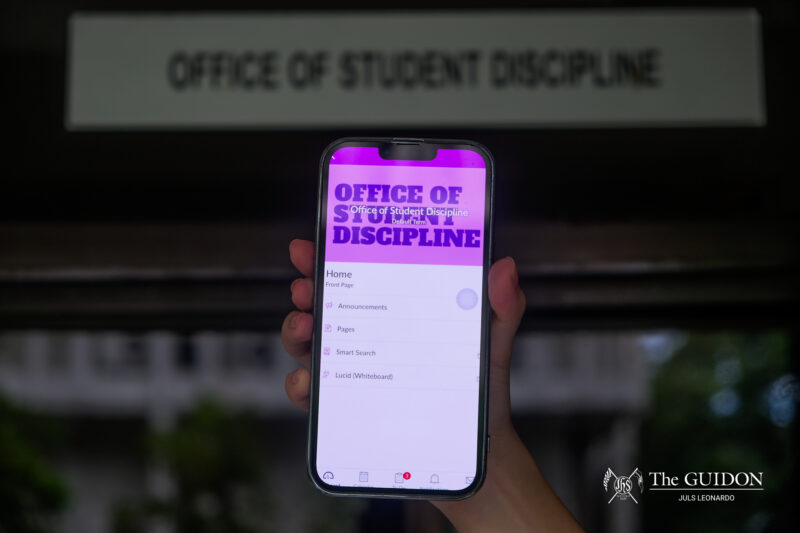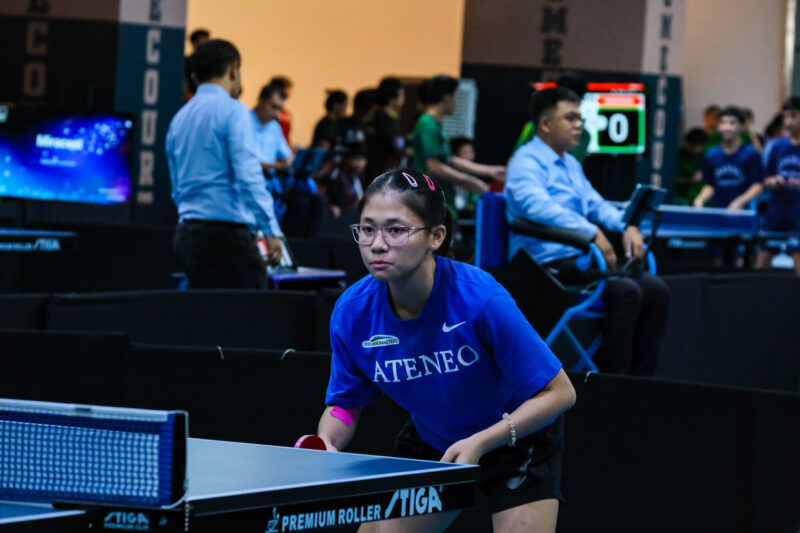THE SPEAKERS of the Ateneo Assembly’s “Face the Nation: Dissecting the Federalism Debate” talk scrutinized the discourse on federalism by tackling the arguments of both the propositional and the oppositional sides in this year’s Talakayang Alay sa Bayan (TALAB) at ISO Conference Rooms 5 and 6 on October 10.
Themed “Down From the Hill,” this year’s TALAB celebrated the 50th anniversary of the manifesto published by The GUIDON in November 1968. The roster of talks was geared towards the context and issues prevalent at the time of the manifesto, which included social injustice, democratization of political and economic power, interventions for justice, and Filipinization.
Two speakers for and against federalism were originally tasked to lead the debate session. However, the speaker who was pro-federalism was unable to attend the event due to unforeseen circumstances, thus rendering the debate into a talk.
The context of federalism
The Ateneo Assembly’s Executive Director for Politicization Iñaqui Mangahas stepped in to explain the context behind the debates on federalism. He noted that even prior to the election of President Rodrigo Duterte, the then Davao mayor had already been pushing for federalism, seeing this as the solution to halt the Moro National Liberation Front (MILF) conflict in Mindanao and distribute national wealth.
Mangahas proceeded to weigh on the pros and cons of the Consultative Committee (ConCom) Draft Constitution on federalism, emphasizing the “indissolubility and permanence” of shifting into a federal system. According to him, such transition is rendered irreversible under the proposed ConCom Draft Constitution, “[making] such characters impossible to amend.”
He also touched on how the transition period, which is projected to take place over three years, could bring activity in the country to a standstill. Carrying out new systems of government in place that are not existing today, Mangahas said, will entail several complications.
“The options presented to us by the Duterte administration [do not] seem to be desirable enough to warrant a shift to federalism at this point,” he said.
“While the current Senate considers Duterte’s cause ‘dead,’ the Senate’s composition might chance after next year’s election. The prospect remains real,” he added.
In conclusion, Mangahas prompted the audience to ask themselves, “After we ask if [the shift to federalism] is good or bad, it would be: para kanino (for whom is it)?”
“Trust deficit”
One of the debaters was Atty. Michael Yusingco, a non-resident research fellow from the Ateneo School of Government. Although he was tasked to speak against federalism, he clarified that while he does not support the drafts being proposed to the government, he still advocates for decentralization of power from the central government to the regional government.
Instead of tackling whether or not federalism was necessary to be implemented, he opted to focus on which transitional process federalism should be subjected to, claiming that the entire federalism debate was merely “a contest of ideas that we see on the surface.”
“I think the real debate is between the constitutional reform and legislative reform. The question we are burdened with is, ‘do we change our constitution or do we leave it as it is?’” Yusingco asked.
He explained that if the administration’s desire to shift into a federal system persists, then revisions in the Constitution are mandatory, as federalism and Charter Change (Cha-Cha) “go hand-in-hand.” However, the problem is situated in Filipinos’ aversion to the idea of constitutional change.
Yusingco listed down the three major obstacles to Cha-Cha, citing “the patent disunity in the administration of federalism, the toxic atmosphere in its discourse, and the deep mistrust among members of the Congress.”
“If not Cha-Cha, what is our option to dismantle Imperial Manila? The answer is legislative reform,” he said.
In detail, Yusingco then discussed both the federalist and non-federalist features under the provisions of the Constitution. He noticed that the Local Autonomy Act of 1991, which is the exercise of certain basic powers by local government units, is “so wide in scope and depth, it can approximate a federal set-up.”
“The problem is, in both cases, we are burdened with a trust deficit. If we cannot trust our own lawmakers with Cha-Cha, how can we trust them on legislative reform?” he said.
Yusingco talked about how this debate will become an election issue for the 2019 midterm elections. He urged the Ateneo community to enquire into the plans of the upcoming candidates.
“To the [administrations who are pushing for a federalist system], let’s ask: what draft are you supporting? Tell us, so we can pinpoint to you the faults [of it]. For the opposition, [the answer] can’t be just no. What is the alternative that you offer? We want these candidates to tell how they will do it, and how they will lead us,” he said.
When asked if he was hopeful about the legislative reform, Yusingco answered, “The Philippines is not ready for Cha-Cha. The legislative reform is the lesser of two evils. It’s [not necessarily] the easiest way, but it’s the safest path [for now].”
“Even if Cha-Cha doesn’t push through, at the very least we want to come out of this process better enlightened, as better citizens,” Yusingco said.







